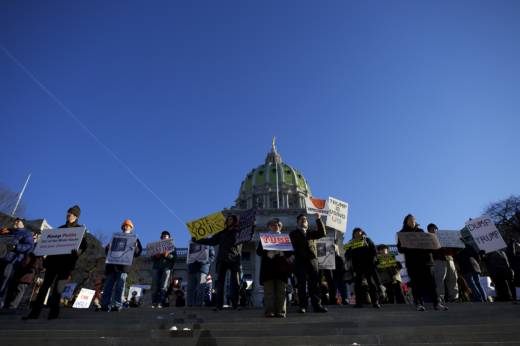Donald J. Trump will be the next president of the United States.
That's been the case since Nov. 8, when Trump won 306 electoral votes, despite losing the national popular vote to Hillary Clinton by nearly 3 million.
And on Monday, the result was ratified by Electoral College voters, who gathered in state capitals across the United States to formally vote for president.
That voting continues, but by early evening, Trump went over the 270 needed, according to the Associated Press, which tracked results from capital to capital. That was despite a pitched effort by some on the left, who wrote letters to Trump electors trying to convince them to switch their votes or not vote at all and keep Trump short of the 270 needed.
Not only did it not happen, but more electors tried to defect from Hillary Clinton Monday than from Trump, by a count of 7-to-2, as of Monday afternoon. Three Democratic electors tried to vote for Bernie Sanders instead of Clinton — one in Maine, one in Minnesota and one in Colorado. The electors' votes, however, were disallowed because of state rules binding them to the statewide popular vote winner.

9(MDAxOTAwOTE4MDEyMTkxMDAzNjczZDljZA004))